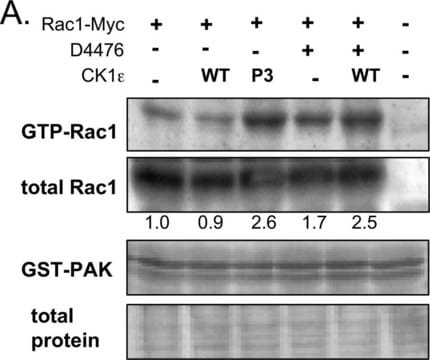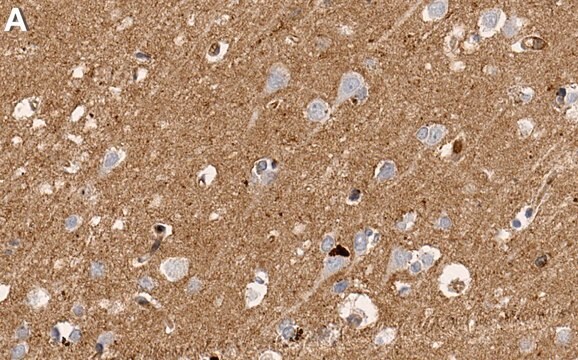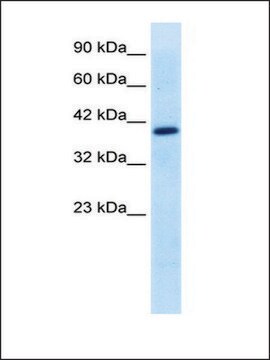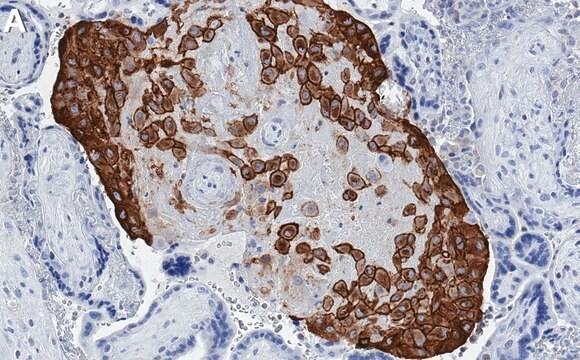SAB4300461
Anti-RAC1 (Ab-71) antibody produced in rabbit
affinity isolated antibody
Synonym(s):
Anti-MGC111543 antibody produced in rabbit, Anti-MIG5 antibody produced in rabbit, Anti-TC-25 antibody produced in rabbit, Anti-p21-Rac1 antibody produced in rabbit, Anti-ras-related C3 botulinum toxin substrate 1 (rho family, small GTP binding protein Rac1) antibody produced in rabbit
About This Item
Recommended Products
biological source
rabbit
conjugate
unconjugated
antibody form
affinity isolated antibody
antibody product type
primary antibodies
clone
polyclonal
form
buffered aqueous solution
mol wt
~28 kDa
species reactivity
mouse, rat, human
concentration
1 mg/mL
technique(s)
indirect immunofluorescence: 1:100-1:200
western blot: 1:500-1:1000
isotype
IgG
immunogen sequence
(P-L-S-Y-P)
NCBI accession no.
UniProt accession no.
shipped in
wet ice
storage temp.
−20°C
target post-translational modification
unmodified
Gene Information
human ... RAC1(5879)
General description
Immunogen
Application
Biochem/physiol Actions
Features and Benefits
Target description
Physical form
Disclaimer
Not finding the right product?
Try our Product Selector Tool.
Storage Class
10 - Combustible liquids
wgk_germany
WGK 1
flash_point_f
Not applicable
flash_point_c
Not applicable
Choose from one of the most recent versions:
Certificates of Analysis (COA)
Don't see the Right Version?
If you require a particular version, you can look up a specific certificate by the Lot or Batch number.
Already Own This Product?
Find documentation for the products that you have recently purchased in the Document Library.
Our team of scientists has experience in all areas of research including Life Science, Material Science, Chemical Synthesis, Chromatography, Analytical and many others.
Contact Technical Service








